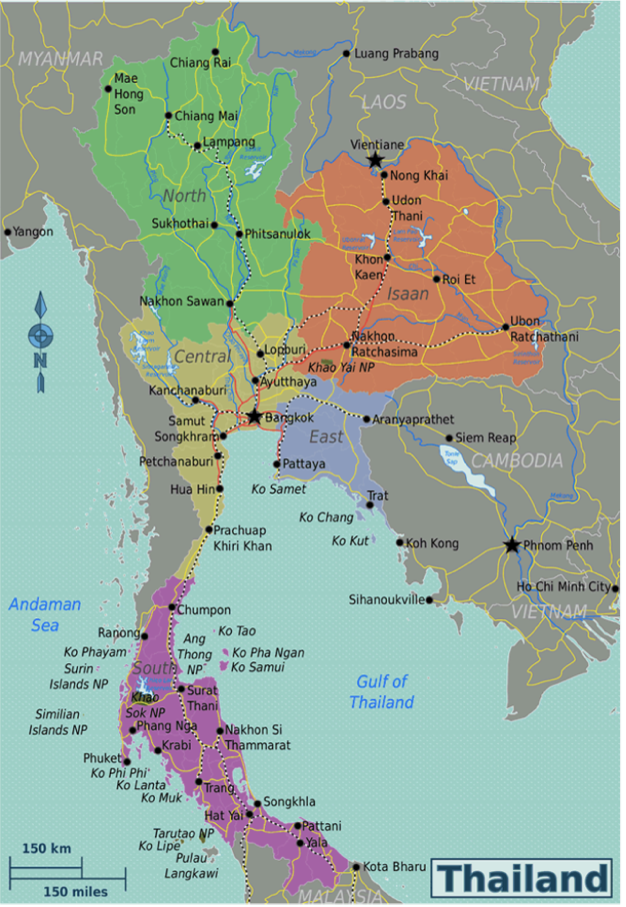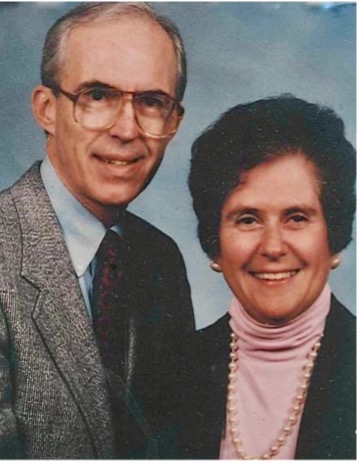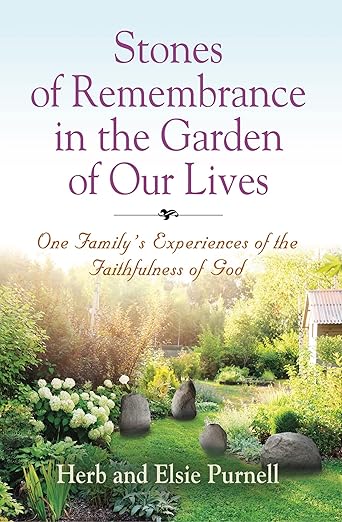A Tribute to Herb and Elsie Purnell
Long-Term Missionaries of San Gabriel Community Church
By Greg and Kathleen Parsons
June 2025
_______
The doctors did not expect Herb Purnell to live into his twenties. After being hospitalized for two months in 1950, he learned that “everyone” assumed he wouldn’t survive long enough to be discharged. That season of physical hardship as a young man deepened his commitment to serve the Lord—a commitment that would last 75 years, until his death in 2025 at the age of 90.
In 1952, Elsie Purnell could not have imagined how her strong calling to serve the Lord in Asia would unfold. She would go on to become a respected mentor, wise counselor, trusted friend to missionary families, and a compassionate mother to those who, like her, experienced the trauma of losing a child to violence.
Both born in 1934, Herb and Elsie sensed a call to ministry from a young age—Herb as a teenager, Elsie as a child. They met while serving as counselors at a summer camp. During her time at Moody Bible Institute, Elsie regularly attended an OMF (Overseas Missionary Fellowship) prayer meeting and invited Herb, who was studying at Wheaton College after transferring from Philadelphia College of the Bible. Through these meetings, they both caught a vision to serve in Thailand.
After graduating in 1956, they applied to OMF International and attended the Missionary Candidate Course in Philadelphia. But, as Herb later reflected, “At the end, we were turned down. It was very painful because our call—to missions, to Thailand, and to each other—was all through OMF.”
Following a period of prayer and uncertainty, their pastor connected them with a small church in the Arizona desert. Herb recalled, “The town had never had a resident pastor. Our church, First Baptist Church of Quartzsite, had twelve people on the membership roll.” After 15 challenging months of ministry, they were invited to reapply to OMF and were accepted. In 1959, they left for orientation in Singapore before beginning language study in Thailand.
When we were accepted by OMF and left for Asia, we were not able to say where we felt God was calling us. That country designation was the prerogative of the directors in Singapore. We were designated to the North Thailand field. We obviously had to learn Thai first. Then the field administration designated us to the Mien. But before beginning with Mien, we requested, and were granted, about two years to learn Northern Thai.[1]
This language foundation was essential and foundational. The Mien used Northern Thai as a trade language, and most travel to Mien villages required passing through Northern Thai communities.
In 1963, with two young children and another on the way, the Purnells moved into a Mien village in the remote mountains of Northern Thailand. There were no roads—everything they needed had to be carried in by foot. Although they had hoped to stay long-term, their time in the village lasted just 14 months.

In 1964, they returned to the U.S. for an extended furlough. Language learning, which had become a clear gift for Herb, soon became central to his ministry. During that time, he completed an M.A. and a Ph.D. in linguistics from Cornell University, focusing on the Mien language. In 1968, he edited the first Mien-English dictionary, based on materials from a retired OMF missionary and his own files.
When they returned to Thailand in 1970, they couldn’t live in a village, so Herb made short trips and invited Mien speakers to stay with them so he could continue his research. Herb later explained:
“Because of my field experience in three languages, my academic training in linguistics focus on Mien, and my applied linguistic training in helping people learn languages, I became the OMF language consultant for North Thailand. I also traveled to other OMF fields in Asia to evaluate language-learning programs and occasionally put on workshops and to train language supervisors.”
In the early 1980s, the Purnells returned to the U.S. when Herb was invited to chair the Applied Linguistics and TESOL Department at William Carey International University (WCIU) in Pasadena, California. The university was part of the U.S. Center for World Mission (now Frontier Ventures), founded by Ralph and Roberta Winter in 1976. (The TESOL/Applied Linguistics program later moved to Biola University.)
Once in Southern California, Herb began ministering to a group of Mien who had resettled in Long Beach. He recalled:
About that time, the Mien who had settled along the West Coast became interested in writing in the language but realized that the orthographies some of them had used back in Asia were unsuitable here in America. They wanted an orthography that looked more like English and that could help them learn English. Because of my training and experience, I was invited to guide them through the process of developing a new alphabet and way to write their language
A Personal Connection

Kathleen and I met the Purnells in 1983 in Pasadena. Herb was teaching at WCIU, where we served on staff. We lived just a block away in university housing. Most of the U.S. Center for World Mission staff were in their twenties, so Herb and Elsie stood out as mature leaders with real-world, international experience.
Each morning, our staff gathered for Bible study and prayer. Herb occasionally joined us, but Elsie was consistently present. She served as a counselor for women and was part of an “elders council” that helped address difficult issues among the USCWM staff.
In the fall of 1983, we visited San Gabriel Community Church (SGCC) Herb and Elsie—along with Don and Barbara Brown (with African Inland Mission)—were in attendance. Together we saw SGCC as a place to share our vision for missions with younger people in the church.
As their book details, the Purnells experienced profound sorrow long before returning to the U.S. Missionary friends in Thailand had been severely injured or killed in car accidents, and another colleague was murdered while hiking to a village. In 1993, after purchasing their first home near Eaton Canyon in Pasadena, the house was destroyed by fire just three days after they moved in. The Santa Ana winds drove the flames rapidly across the canyon. Most of their belongings were still in boxes, including precious photographs and Herb’s linguistic research on computer disks—nearly all lost.
But nothing compared to the grief of 1988, when their daughter Lois was kidnapped, raped, and murdered in Pasadena. The loss stayed with them for the rest of their lives. Our USCWM community and SGCC grieved deeply alongside them.
During their years in Pasadena, Elsie became a trusted counselor to staff and missionaries. She was especially committed to helping missionary kids—“Third Culture Kids” (TCKs), children who grow up in cultures different from their parents and return to their parent’s home country in their teen or college years. She helped lead a symposium on missionary education, which became the cover story for Mission Frontiers in April 1986.
In 1987, Herb began a new Mien dictionary project. He desired to provide a resource for the Bible translation team and for new missionaries learning Mien. Herb writes,
…the work on it was always ‘as there was time’ from my regular teaching or research responsibilities. And there were unavoidable gaps: at one point, our house burned and only two copies of the manuscript survived (only because people were late in sending them to me). A friend took the hard copy and reconstituted the database over a seven-month period. There were many starts and stops, and hiccups along the way.
The work was at times tedious
I emailed drafts to a retired missionary in Ottawa, Canada, who would call a Mien friend in a small Thai village. After farming all day, he’d discuss the entries with her. She’d transcribe their notes and send them to me. I revised the entries, clarified meanings, and checked for consistency with the help of others around the world. A friend in Bangkok formatted and finalized the manuscript. Though I did the analysis and writing, it was a team effort.
Their passion was for the Mien people to know Christ. In North America, the Mien are about 15% Christian and 85% Taoist. Herb hoped the dictionary would bring unity and open communication within the community. Over time, the dictionary’s scope expanded to serve missionaries, academic researchers, and Mien communities in the U.S. and Canada. It raised the status of the language in school districts and preserved cultural knowledge for younger generations.

The dictionary was published in 2012. The underlying database can now be adapted to other languages. Even after Elsie’s death in 2005, Herb continued his work. He completed the dictionary, returned to Thailand multiple times to update Northern Thai language learning materials, and served faithfully until his death in January 2025.
Lessons Learned
Kathleen and I have reflected on Herb and Elsie’s lives many times. Our entire staff looked up to them as people who trusted God through unimaginable hardship. Here are a few of many lessons we learned from them that we could share
- Care for missionary families: Missions is no longer about sacrificing families for ministry. God often works through families to bless “the families of the earth” (Genesis 12:1–3).
- Value scholarship in missions: Careful research and attention to detail can create tools that bless future missionaries and global workers.
- Suffering doesn’t have to divide families: The Purnells modeled how hardship can deepen love and faith, not fracture them.
- Be careful with our words: Unless we’ve experienced very similar pain, we shouldn’t say, “I understand what you’re going through”, in our desire to bring comfort.
- God’s ways are often mysterious: We may not understand His timing or purposes, but He remains faithful.
- Grief is good: It’s painful, but necessary and formative.
- People grieve differently: Herb processed Lois’s death over many years, while Elsie’s journey looked different.
We encourage you to listen to Herb’s message at SGCC (introduced by Pastor Steve Balentine), where he shares about processing grief. It will help you understand how believers wrestle with deep pain and enduring faith.
For more on their incredible story, Herb and Elsie’s book (Stones of Remembrance in the Garden of Our Lives) is available in the SGCC library or on Amazon.

[1] All quotes from Herb, unless otherwise noted, are from an interview done for Herb’s 50th Anniversary from Philadelphia College of the Bible, now Cairn University, where he received a Lifetime of Service Award. An article was published in the Cairn alumni magazine from Herb’s early College years at what is now called Cairn University. See the full article here.
